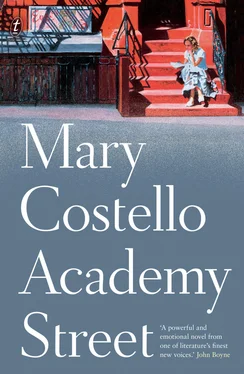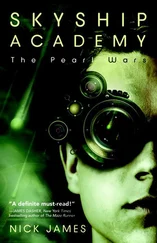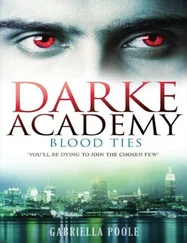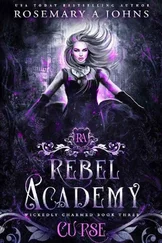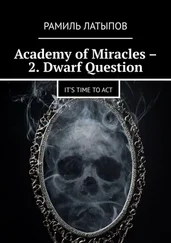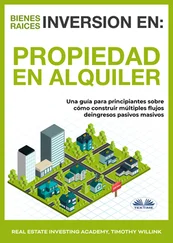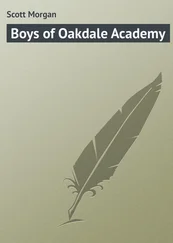Mary Costello - Academy Street
Здесь есть возможность читать онлайн «Mary Costello - Academy Street» весь текст электронной книги совершенно бесплатно (целиком полную версию без сокращений). В некоторых случаях можно слушать аудио, скачать через торрент в формате fb2 и присутствует краткое содержание. Год выпуска: 2014, Издательство: Text Publishing Company, Жанр: Современная проза, на английском языке. Описание произведения, (предисловие) а так же отзывы посетителей доступны на портале библиотеки ЛибКат.
- Название:Academy Street
- Автор:
- Издательство:Text Publishing Company
- Жанр:
- Год:2014
- ISBN:нет данных
- Рейтинг книги:3 / 5. Голосов: 1
-
Избранное:Добавить в избранное
- Отзывы:
-
Ваша оценка:
- 60
- 1
- 2
- 3
- 4
- 5
Academy Street: краткое содержание, описание и аннотация
Предлагаем к чтению аннотацию, описание, краткое содержание или предисловие (зависит от того, что написал сам автор книги «Academy Street»). Если вы не нашли необходимую информацию о книге — напишите в комментариях, мы постараемся отыскать её.
J.M. Coetzee
Academy Street This is an intimate story about unexpected gifts and unbearable losses, and the perpetual ache for belonging. It is exquisitely written and profoundly moving.
Academy Street — читать онлайн бесплатно полную книгу (весь текст) целиком
Ниже представлен текст книги, разбитый по страницам. Система сохранения места последней прочитанной страницы, позволяет с удобством читать онлайн бесплатно книгу «Academy Street», без необходимости каждый раз заново искать на чём Вы остановились. Поставьте закладку, и сможете в любой момент перейти на страницу, на которой закончили чтение.
Интервал:
Закладка:
‘It is quite something, coming on you like this.’ He looks away and is quiet for a moment. ‘Do you know of Easterfield’s history? Do you know when the house was built?’
‘Yes, sir. My old teacher said it was built in 1678.’
She remembers the day in 5th class when Mr Clarke stopped in the middle of a History lesson and told her to stand and tell the class about Easterfield. She was mortified. Her father had bought the house and a hundred acres in 1911, she said in a low voice, and her parents got married in 1925. She did not say that her mother had once told her that the house had three hundred and sixty-five windows, a window for every day of the year. It was not true; she counted them once and got only thirty-seven. ‘We have an orchard, and two stairs,’ she said, and could think of no more.
‘Is that it? Is that all you know? Sit down, Tess Lohan,’ Mr Clarke said, and then looked around the class before continuing.
‘Easterfield House and estate was owned by the Cannon family from 1678 until the 1800s. King Charles the Second granted them five hundred acres. The house was closed up in the 1830s but was reopened as a famine hospital to treat the sick and the starving during the 1840s. The locals.’ He paused, and looked into individual children’s eyes. Tess had feared he would alight on her again.
Now, Mr Brown reaches into his bag, brings out a book.
‘You know then that the house was used as a hospital during the Famine?’
‘Yes, sir.’
‘And that hundreds of patients died there? I only discovered this myself relatively recently. A few years ago I compiled a history of all the big houses and estates in the area. I was quite shocked by what I found out about Easterfield. The unclaimed corpses were buried on the land. In the ditches, down in the quarry, under trees — the groves of oak and beech — anywhere. Places that I remember, where I’d played… They threw lime on the bodies to prevent the stench.’
He grows thoughtful. ‘My family did not come into possession of Easterfield until some time later. They were, I believe, kind to the tenants.’
Tess nods. All she wants now is to leave. He hands her the book. ‘Perhaps you’d like to borrow this. Bring it back tomorrow.’
Later, in bed, she remembers talk at school and at the village pump about local people who claimed to have heard the cries of the dead when they passed Easterfield at night. She remembers the rope swing that Denis hung from a tree above the quarry for herself and Oliver, and their laughter as they swung out high over the rocks. In her mind she moves through the farm, remembering each field, each copse of trees. She sees the boughs, bare in winter. She feels a chill and pulls the bedclothes tight around her and tries to sleep.
4
AFTER THREE YEARS, Tess’s schooling comes to an abrupt end. Maeve has gone to train as a teacher at Carysfort Training College in Dublin and money is scarce. But that is not all. During the summer Tess spends six weeks away from home, helping Evelyn following the birth of her third child. From the strain of housework and care of Evelyn’s babies she is tired all the time. By nightfall she is weak and every breath she takes is a painful stab. She develops a cough which so alarms Evelyn that the doctor is summoned.
It is not mentioned, TB, but it is what everyone fears. At the convent, girls would mysteriously disappear, to return six months later, or not at all. Though it has never been said, it is, she suspects, what caused her mother’s death. It is why her mother’s room was fumigated and why they were all tested.
She has pleurisy, not TB. Nevertheless she must spend three months in the fever hospital in Galway. Her spirits sink when she enters the ward of thin pale-faced women. She settles into her bed and looks out at the windless day, time stretching before her. A flock of starlings rises and blackens the sky. A memory of home, and then of school, materialises. At that moment she understands and begins to mourn what is lost. Exhausted, she lies down and looks up at the ceiling, waiting for her lungs to dry up and quieten. Later, rested, she seeks out books. The hospital library consists of two shelves of ancient-looking paperbacks at the end of a corridor. The Lives of the Saints, Romeo and Juliet, The Red and the Black, The World of Plants . She reads them all. She counts the days until Denis and Claire and her father come to visit. Then, when they come, there is not much said and the visit is soon over. When they leave she stands at the window looking down at patients shuffling around the grounds.
The patients are mainly from the city. But there is one boy, Tony, a shy loping teenager — almost a man — who is from the country. He is tall — nearly too tall — and hangs his head and has large agricultural hands. She feels a pull to him and senses his pull too, and more and more her thoughts turn to him. But then one evening something happens: a commotion arises at the back of the common room. A woman squeals. There is a rat. She catches a glimpse of a long creature — brown-and-white like the piebald horse the tinkers keep — with a tail as long as the body and a belly that grazes the floor, darting along, disappearing into a hole in the corner. Tony — his eyes wild — is lunging after it, intent, and then he bends and inserts his long middle finger into the hole after the rat. Again and again, he thrusts his finger in to the hilt, poking, jiggling it around, frantically trying to get at the rat.
On her return home, she slips back into life at Easterfield, into the rounds of housework and the comings and goings on the farm, under the roof with her father and brothers and Claire, and Mike Connolly. Though she herself does not feel delicate, the word attaches to her, and she is spared from heavy tasks and farm work. She begins to mark events — the births of Evelyn’s children, Oliver leaving the national school, her father’s £200 win on the Sweepstakes, the arrival of electricity. In the dark corner under the back stairs she writes these dates on the distempered wall. When she is eighteen Denis teaches her to drive and, from then on, she regularly drives her father to fairs and funerals. One hot summer’s day, with Maeve home on holidays from her teaching job in Dublin, they drive their father to the sheep fair in the town, leaving him to his business among the pens and carts and dealers. They browse the shops for an hour, and then, flushed and giddy and parched with the thirst, they enter the hotel in the square. In the carpeted lounge off the hall they stand at the bar and order two glasses of orange and turn to find their father sitting with a group of men in the corner, talking and drinking and haggling over prices. When he sees them his face darkens. He does not acknowledge them, or even glance at them later when they leave. On the way home his fuming silence fills the car. Inside the house, he breaks out. They have no shame entering a public bar like that, sitting up on high stools with men watching them. Like street walkers. Laughing and streecing and making a show of themselves. Making a show of him. ‘How is it at all that things are always going against me?’
He is full of aggravation. They have learned not to respond to his barging, his oppressive silence, his sighing. They have each, in their separate ways, learned how to read him, how to evade his wrath, how to gauge when his guard is down and they might seek advantage. Over the summer the three sisters, with Denis at the wheel, drive to dances organised by the Pioneer Association or the Ploughing Association and to carnivals held in marquees in local towns. Always, the next morning there is an inquisition. Who did ye meet? Who did ye talk to? Were the Burkes there? Tess lets the others answer. She remembers the men lined up on one side of the dance floor and the women on the other. She danced with every man who asked her, not because she wished to, but because she sensed something of the dread that these hopeful anxious men had endured just to ask, and the awful humiliation they would suffer if she refused.
Читать дальшеИнтервал:
Закладка:
Похожие книги на «Academy Street»
Представляем Вашему вниманию похожие книги на «Academy Street» списком для выбора. Мы отобрали схожую по названию и смыслу литературу в надежде предоставить читателям больше вариантов отыскать новые, интересные, ещё непрочитанные произведения.
Обсуждение, отзывы о книге «Academy Street» и просто собственные мнения читателей. Оставьте ваши комментарии, напишите, что Вы думаете о произведении, его смысле или главных героях. Укажите что конкретно понравилось, а что нет, и почему Вы так считаете.
